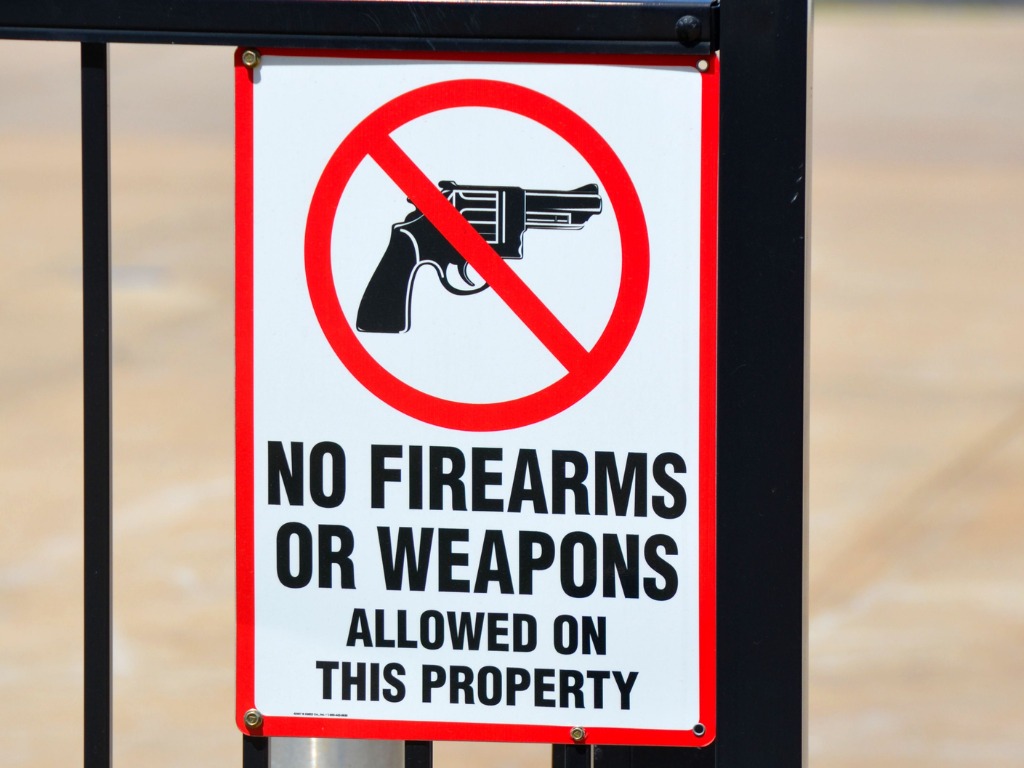

We may earn revenue from the products available on this page and participate in affiliate programs. Learn More ›
Approximately 75 million Americans live in communities governed by a homeowners association (HOA). An HOA is a self-governing organization within a community. Residents pay fees to the HOA, and these HOA fees are used for managing and maintaining common areas, amenities, and services.
In communities governed by an HOA, a document known as a Declaration of Covenants, Conditions, and Restrictions (CC&Rs) stipulates the rules homeowners must abide by. In turn, the association must follow HOA bylaws that specify how it should be run. An HOA may enact additional rules and regulations over time, in accordance with its bylaws. Homeowners who fail to follow the CC&Rs or other community rules can be fined, lose access to shared areas, and face other penalties.
If you live in a neighborhood governed by an HOA, you may occasionally find yourself thinking, “My HOA is the worst!” If so, it may be time to take another look at the HOA’s CC&Rs. Board members may be abusing their privileges, or they may be enacting unfair, unenforceable HOA rules. Knowing which rules don’t hold water can help you decide when to stand up to your HOA and fight for your rights. Note, however, that rules governing HOAs vary from state to state, so it’s important to check with local authorities first.
What Are Unenforceable HOA Rules?
HOAs seem to have rules for everything, from the color you can paint your house to the length of your grass to the number of guests you can bring to the pool. Can you legally ignore an HOA rule? It’s possible that you can, at least if that HOA rule turns out not to be enforceable. Unenforceable rules tend to be those that contradict federal or state law, are enforced selectively or inconsistently, or have been enacted without following proper procedures.
To find out if your HOA has any unenforceable rules, start by reviewing the governing documents for your community. If you don’t have a copy of the CC&Rs, request one from your HOA or county recorder’s office. Review the rules to see if any of them are similar to the examples of unenforceable HOA rules listed below. If any of your HOA’s rules seem questionable, take the time to confirm that they’re actually considered unenforceable in your municipality before you start making waves.Also make sure the HOA rules clearly state who is responsible for each maintenance task—the HOA or the homeowner. This can help prevent future disagreements, misunderstandings, or violations.
1. “Rules” That Were Never Actually Enacted

HOA fines can be imposed only if an actual community rule has been violated. Your homeowners association cannot simply decide to fine you without justification or evidence of a regulation violation.
If you feel you have been unjustly fined, check the CC&Rs, and if it does not appear that you broke any rules, appeal the fine with the HOA.
2. Discriminatory Rules

The Fair Housing Act (FHA) prohibits discrimination based on an individual’s race or color, disability, ethnicity, religion, sex (including sexual orientation or gender identity), or familial status. Some states have also passed laws prohibiting discrimination based on age, marital status, primary language, ancestry, or other factors, so check with your state for a comprehensive list.
Examples of HOA actions that would violate the FHA include not permitting residents to make reasonable structural changes to accommodate the needs of a person with a disability, or limiting children’s access to shared facilities, such as a pool or clubhouse.
To report a fair housing complaint regarding discriminatory HOA laws, contact the U.S. Department of Housing and Urban Development or complete the online form on its website.
3. Rules That Are Selectively Enforced

An HOA that enforces rules only against a protected class of individuals could be violating the Fair Housing Act, in which case the HOA could face discrimination charges. If your HOA enforces rules selectively—like fining some residents for leaving up holiday lights too long while ignoring others, or suddenly enforcing a long-neglected rule in the CC&Rs—those rules may be unenforceable.
If you believe you’re the victim of selective enforcement of a rule, do your homework. Check the CC&Rs to find out whether you actually violated a rule. If you did, look around the community and talk with other residents to find examples of that same rule having been broken with no consequences. Draft a letter to the HOA explaining the situation with specific evidence, or present your case in an upcoming HOA meeting. If the HOA does not consider this a case of selective enforcement, you may consider suing, but be forewarned that selective enforcement can be hard to prove.
4. Rules Enacted Without Appropriate Process

Every HOA has a set of procedures, outlined in its bylaws, that must be followed when creating new rules or amending its CC&Rs. Typically, proposed rules must be voted on by community members. If the HOA is trying to enforce a rule that was not properly added to the CC&Rs, you may be able to dispute whether you are indeed violating a policy.
Determining whether the rule in question was properly added to the HOA’s CC&Rs will require some research. You’ll need to review the bylaws to learn the correct procedure for adding or changing rules, and you’ll need to review minutes from past meetings to determine if that rule was ever actually added. If you discover that the rule was not added properly, write up your findings and present your concerns to the HOA board.
5. Freedom of Speech Violations

To improve aesthetics, curb appeal, and community cohesion, some HOAs have rules prohibiting political signs. However, such rules restrict free speech, so many states have enacted laws that prevent HOAs from doing this. It’s a good idea to check both your HOA’s rules and state law before putting out a political sign.
Note that even where political signs are permitted by state law, HOAs can make rules that limit the size and location of signs and how long before and after an election signs can remain up. (Some states have enacted similar rules.)
If you believe your homeowners association is infringing on your free speech rights, complain to the management company and, if necessary, escalate the matter to a local or state authority.
6. Second Amendment Violations

The Second Amendment protects the right to bear arms. While your HOA may be able to enact restrictions on carrying or using firearms in communal areas, it cannot create rules prohibiting or restricting residents from owning firearms.
As with other rules you feel are unenforceable, begin by complaining to the board or management company, and, if necessary, seek help from a local or state agency or a gun advocacy group.
7. Freedom of Religion Violations

Religious freedom is another constitutionally protected right. If HOA rules expressly exclude members of any specific religious groups from the community or bar their access to any communal areas, these regulations would violate the Fair Housing Act.
Moreover, even if the rules do not specifically cite religion as the reason for exclusion, you could still file a case with the management company or U.S. Department of Housing and Urban Development if the intent is clearly religiously motivated.
8. Rules That Ban Flying the U.S. Flag

The Freedom to Display the American Flag Act of 2005 prohibits HOAs and other property management groups from denying homeowners the right to fly the U.S. flag. HOAs can, however, restrict the time, place, and manner of the display. It’s worth noting that this applies only to flying the American flag. HOAs can prohibit the display of seasonal and other types of flags.
If your HOA’s governing documents prohibit flying the U.S. flag, inform your board of this discrepancy in writing or in person so they can take steps to correct the CC&Rs. Pursue legal assistance if necessary.
9. Satellite Dish and Antenna Restrictions

If your HOA is demanding that you remove your satellite dish or TV antennas, you may be able to fight the rule. The FCC’s OTARD (Over-the-Air Reception Devices) rule states that an HOA cannot stop its residents from installing antennas or satellite dishes on their property. The HOA can, however, limit the size of satellite dishes or impose rules regarding where satellite dishes or antennas can be placed.
10. Limits on Landscaping

In some states, including Florida, Texas, California, and Colorado, laws prevent HOAs from banning the use of drought-resistant landscaping, called xeriscaping.
- A California law prevents HOAs from fining homeowners who install drought-tolerant landscaping, even though it may not be in keeping with the community’s regulations.
- A 2024 Florida statute prevents HOAs from prohibiting homeowners from planting “Florida-friendly” landscaping.
11. Bans on EV Charging Stations

Several states, including California, Colorado, Florida, Hawaii, Maryland, New Jersey, New York, Oregon, and Virginia, have enacted laws to protect a homeowner’s right to install an electric vehicle charging station on their property. Installation may, however, be subject to reasonable restriction by the HOA. Many states are weighing similar laws, so check local laws before moving forward on installing an EV charger on your property.
12. Rules That Ban Clotheslines

Clotheslines are a regular target of HOAs. Some consider them eyesores and try to prevent residents from hanging their laundry outside to dry. Depending on where you live, however, HOA rules regarding clotheslines may be unenforceable.
A few states, including Florida, Maryland, and Colorado, have “right to dry” laws that prevent HOAs from enacting rules against drying clothing outside. Keep in mind that HOAs may still be able to limit the size and location of clotheslines.
13. Rules That Prohibit Solar Panels

More than 20 states have enacted solar access laws that prohibit HOAs from preventing homeowners from installing solar energy systems. In many cases, however, HOAs can still impose restrictions. Rules vary from state to state, so it’s important to check both your CC&Rs and state law before considering installing solar panels.
14. Rules That Ban “For Sale” Signs

HOAs sometimes ban “For Sale” signs, concerned that they detract from the appearance of the neighborhood and that having too many of them can make the community seem undesirable. This rule is considered unenforceable in many states, although even in those states, HOAs can limit the size and placement of the signs. Always check your HOA’s rules and state law before putting up a “For Sale” sign, and if the CC&Rs conflict with state law, write to or speak with your HOA board about correcting the error.
Ways to Fight Back Against Your HOA

Being a well-informed and involved member of the community from the get-go puts you in the best position to navigate disagreements with your HOA. Here are a few best practices.
- Be familiar with the HOA’s bylaws and CC&Rs, and make sure you’ve read and understood these important documents before buying a home in the community.
- Attend HOA meetings, vote, and volunteer to help out with projects or serve on committees.
- Talk with your neighbors. Being on cordial terms with fellow residents gives you a chance to discuss community issues and compare notes about problematic HOA practices or regulations.
- Document everything: In any dispute with your HOA, keep careful records, including any evidence in support of your case, emails and letters between you and the HOA board, and relevant meeting minutes.
- Communicate clearly and in writing so you have a paper trail.
- Be polite: You’ll probably end up with a better outcome if your dealings with the HOA are respectful.
Be realistic: If you can’t resolve the dispute through discussion and negotiation with the HOA board, litigation might be the next step—but lawsuits can be costly and time-consuming, and the HOA probably has deeper pockets than you do.
FAQs
HOA rules vary from state to state. For example, some states have laws that prohibit HOAs from having “no pets” policies, while others limit the fees that HOAs can charge. That’s why it’s crucial that before you buy a property in an HOA-governed community, you not only carefully read your HOA’s CC&Rs but also become familiar with state laws that may limit what your HOA can regulate.
While well-run HOAs can improve quality of life in a community, they sometimes overreach. Examples of HOA abuse of power include selective enforcement of rules, discriminatory practices, excessive fees or fines, and trying to enact or enforce rules that run counter to state or federal law.
While you can certainly sue your HOA, lawsuits are costly and time-consuming and should be reserved for instances where there is no easier resolution and you have suffered significant financial loss or injury as a result of the HOA’s actions, or lack of action. Hiring an attorney experienced with HOA disputes, such as a homeowners association attorney, can increase your chances of success.
If you believe you’re being unfairly treated by your HOA, discuss the matter with the HOA board and, if necessary, file a formal complaint in writing. (Check the CC&Rs, which may outline the correct complaint process.) Always start with the least expensive, least confrontational option. If the dispute isn’t resolved to your satisfaction, options include:
-Sending a formal demand letter to the HOA, explaining the situation and describing actions the HOA needs to take to avoid a lawsuit.
-Filing a complaint with the agency that handles HOA disputes in your state. This will require research. Depending on the state, the appropriate agency may be the state attorney general, the consumer protection office, or some other governmental agency.
-Pursuing the matter in small claims court.
An HOA can fine you in accordance with its CC&Rs whenever you violate one of the community’s regulations. Common violations include poorly maintained landscaping, unauthorized renovations, and late or unpaid fees. Some states place limits on HOA monetary penalties or fees, so check your state laws.
